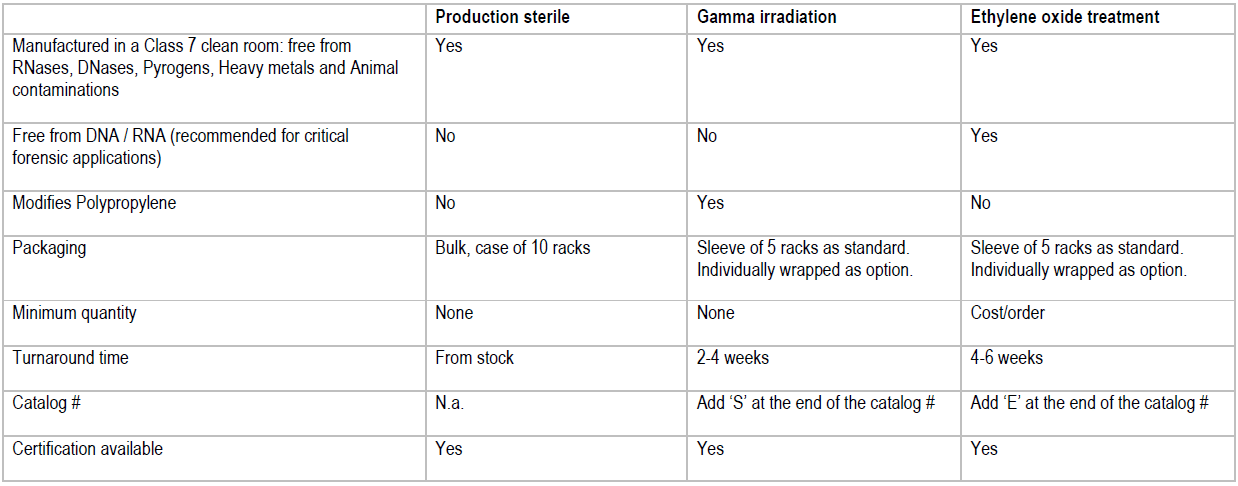Sterilization
1. Class 7 clean room production
Micronic labware is manufactured and assembled in-house in a NEN-EN-ISO 14644-1 Class 7 certified clean room environment (which is comparable to the US Federal Standard 209E Class 10,000). The clean room categories are defined in the US Federal Standard 209E and VDI 2083, which specify the type, number and size of the contaminations. In our clean rooms, sample storage tubes, caps and racks are packed in air-tight bags for storage or transportation. This prevents the entrance or escape of any air, in turn no contamination of the products can take place.
By maintaining the highest possible hygiene level during our production processes, Micronic manufactured labware is free of any detectable RNase or DNase contamination and the endotoxin level of produced and packaged labware is limited to an acceptable minimum (< 0.01 EU/ml). Our products are periodically tested on RNase, DNase and their endotoxin levels by independent expert organizations.
2. Sterilization by gamma irradiation
Gamma irradiation is the most common sterilization method used on labware. Sterilization is a process that is intended to destroy viable forms of microbial life including bacteria, molds, yeasts, viruses, protozoa, and algae (including bacterial spores) to an acceptable Sterility Assurance Level (SAL).
Sterilization by gamma irradiation can ensure a SAL of 10-6: a one millionth probability of microbial survival. Irradiation itself cannot guarantee that the product is free from any detectable RNases, DNases or pyrogens, so class 7 clean room production is an essential requirement.
3. Sterilization using ethylene oxide (EtO)
Micronic has a range of sample storage labware available that secure the long term integrity of DNA samples for forensic analysis. DNA sample storage is of paramount importance in forensic DNA, epidemiological, clinical and genetic database laboratories. In forensic laboratories there is always the possibility, even after tens of years, that cases may be re-opened and any stored DNA sample may need to be re-tested.
In recent years the sensitivity of recovery techniques has increased to allow levels below 200pg of DNA to be detected and analyzed in a forensic context. However this increased sensitivity has led to an increase in the observation of extraneous DNA contamination from storage consumables, sold as sterile or DNase and RNase free, having been rendered fit for forensic analysis using ionising radiation (UV, gamma, X-ray, beta).
Using a novel ethylene oxide treatment process – Micronic’s labware is independently certified to be absolutely DNA-free and therefore provide the perfect medium for long-term, high integrity storage of forensic samples. Micronic is offering the DNA-free products in a special Tyvek packaging. Prices and ordering details are upon request.
Comparison between different methods
